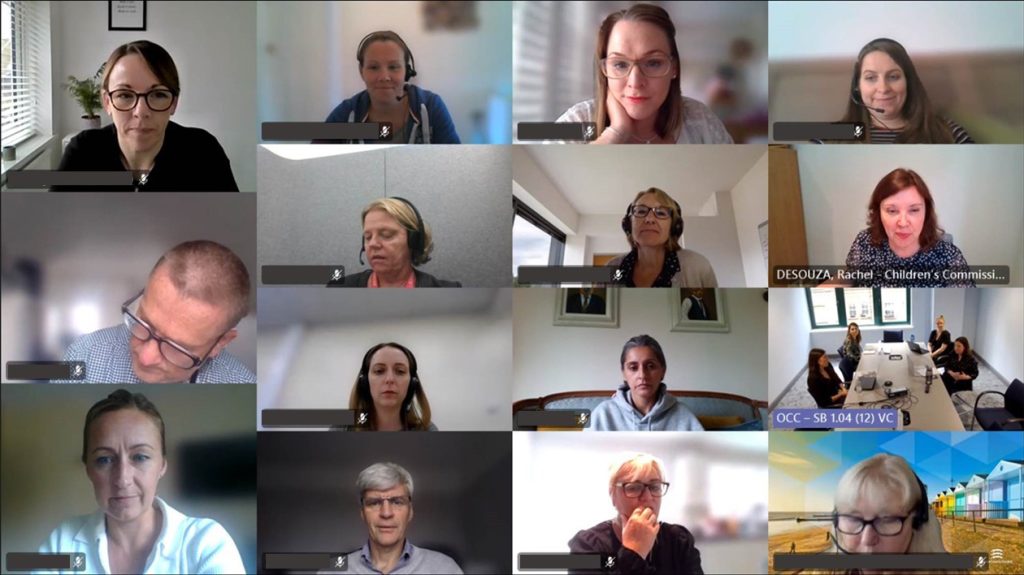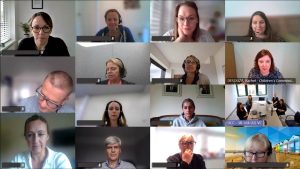
Family is a core pillar of my work as Children’s Commissioner. Last year, I launched The Big Ask, which was the largest survey ever conducted of children in England, receiving responses from almost 600,000 children from all regions of the country. In their responses, children spoke about how important family is to them.
4 in 5 children are happy with their family life, and children explained how having a supportive family has a positive impact on their lives: from receiving emotional support, to being able to talk with family members about their worries and aspirations for the future. There was huge appreciation for all that the family unit can provide. The loving, unstinting work of parents and carers, who have performed miracles in a difficult time during the covid-19 pandemic, was also mentioned. As one 17-year-old boy said in his response to The Big Ask:
“I have been very lucky to have grown up with a very supportive and stable family environment with fantastic role models in my parents” – Boy, 17.
In their responses, children described not just the nuclear family – but families of all kinds. Whatever form family life takes, children simply want stable and happy homes, to support their ability to thrive in childhood and beyond.
While it is welcome news that the majority of children are happy with their family life, children’s responses to The Big Ask illustrate the pressures that some families are facing from the cost of living to the emotional and psychological pressures over the last two years as a result of the covid-19 pandemic. The Big Ask underlines how family pressures have a huge impact on children’s outlook on life. Children who said they were unhappy with their family life were 9 times more likely to be unhappy with their life overall. This correlation was particularly stark for children from vulnerable groups. Children in care or with a social worker were twice as likely to say they are unhappy with family life, compared to other children, and young carers were 70% more likely to say they were unhappy with family life, compared to other children. These children and their families need our support.
The composition, experiences, challenges, and aspirations of modern families has become a key question for me as Children’s Commissioner. I was delighted to be commissioned by the Minister for Equalities to undertake an Independent Review of contemporary family life. This Review was a recommendation of the Commission on Race and Ethnic Disparities, which found evidence that family life is a key factor in many of the disparities in children’s outcomes.
In The Big Ask, children told me that family life is a top priority for them, so I think it should be a top priority for our country. The Family Review will seek to understand children and families’ perspectives on modern family life. It will explore the interaction between family life and children’s aspirations and outcomes. Through the Family Review, I will investigate how we can improve children’s outcomes by understanding and developing the way public services understand the needs of families as a unit. I will work to identify what is already done successfully in support for families, and what can be improved in current provision.
My office is carrying out a range of research for this Review – from conducting focus groups with children and families across the country, to visiting a range of schools and family services to hear directly from children about what family means to them. Roundtables are a key element of our research. Yesterday, I was delighted to Chair the first roundtable for the Family Review. This roundtable was an important opportunity to discuss the experiences of frontline professionals who are delivering support to families – to find out what is working well, and to hear about the challenges that professionals and families are facing. Attendees included members of the Department of Levelling Up, Housing, and Communities’ Supporting Families team, Family Employment Advisors from the Department of Work and Pensions, and professionals from a range of Family Hubs across the country.
During the roundtable, we discussed how frontline services create positive relationships with families, how to integrate different services for families at a local level, the main challenges that frontline services are facing, and solutions that could mitigate these challenges. I was extremely grateful for the insights and ideas of everyone who attended on how support for families can be strengthened further.
Over the coming months, I will continue conversations with a range of stakeholders who work to support children and families, ahead of publishing the Family Review in autumn.






